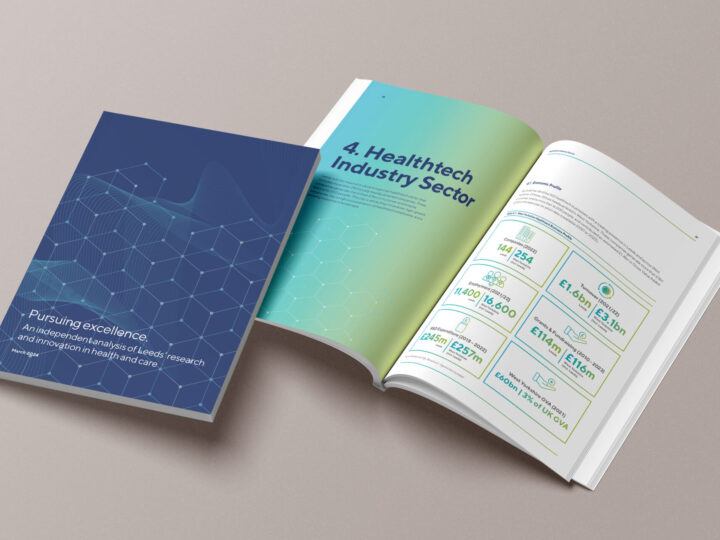Engage Comms is partnering with talent research experts New Street on a joint employer branding masterclass on 24 January 2017 which will help HR and marketing professionals understand how a good employer branding strategy can have a lasting impact on employee engagement/retention, talent attraction/quality of new recruits and overall business performance.
I attended the #TalentTrends 2016 conference back in April and what stuck in mind more than anything else about the future of talent attraction was a talk by Deloitte’s Head of Attraction, Francesca Campalani, who talked about moving the ‘big 4’ accountancy firm from a ‘you-centric’ to a ‘purpose-centric’ approach to not only enable them to attract and retain better talent but to improve overall business performance.
As content marketing specialists who take a ‘quality outcomes over quantity outputs’ approach to customer engagement by creating people-focused content that builds trust and credibility through adding value instead of selling, we found that our work for clients in a wide range of sectors from property and manufacturing to professional and financial services, was having the ‘added bonus’ of positioning them as an ‘employer of choice’. This was contributing to them to not only gaining loyal, high value customers but also loyal, high value employees. As a result, we were doing much more than helping to increase sales, we were having a long-term impact on the efficiency, profitability and sustainability of our clients’ organisations.
HR/recruitment marketing has been growing in significance over the last few years as HR teams have realised that they can tap into the support of their marketing teams to cut recruitment costs by advertising vacancies directly themselves. For some this has just meant using LinkedIn instead of jobs boards while others have recognised that through their own careers micro-sites and social media channels, they can do more than just advertise vacancies; they can also help to ‘sell’ the organisation/role and attract speculative applications from those who want to work for them.
However, while HR/recruitment marketing campaigns, like customer-facing marketing campaigns, can either achieve ‘quick win’ candidates/sales, they won’t contribute to long term growth or provide maximum return on investment if they are done in isolation. A careers microsite that sells the benefits of working for a particular brand may lure in lots of potential candidates but unless the content is a genuine reflection of the ‘real life’ recruitment process, the actual culture of the organisation and the customer experience, the most talented will either not accept the offer or not stick around for long.
Just as savvy customers will no longer be won over by brands who tell them what they want to hear but can’t back up their claims with any substance or decent customer service, savvy candidates will see straight through your ‘polished’ version of reality if it’s not authentic.
Strategic employer branding therefore must go much deeper than ‘recruitment marketing’. It must be an integrated approach to your customer and employee brand that is authentic, consistent and fully embedded into the organisation. It must be something that your people live and breathe – and are happy to shout about. And it shouldn’t sit separately from your customer-facing brand. Talented professionals in 2017 will want to know that they are working for an organisation that ‘does what it says on the tin’. Big salaries and benefits will be little compensation for working for a brand that doesn’t do right by its customers or has a bad reputation for quality and ethics. The customer proposition and the employee proposition need to be almost identical for employer branding to really work, and for those that are recruited into the organisation to become the protectors of its reputation in an environment where consumer trust is paramount.
The key to getting this right is insight. That’s why we wanted to partner with New Street. Talent research provides a fascinating insight into what your target employees want but you need to ‘be’ what they want, not just say that you are. Aligning what your ‘model employees’ want/look like with the people and culture you’ve already got is therefore vital. Like any branding/marketing strategy, it is no longer enough to tell people what you want them to hear about your organisation, you’ve got to find out what they want and identify what you’ve got that they will value. And if you don’t already have it, you must first work out why. If you’re looking for people that want to make a real difference to your organisation, your customers and society, then you need to look at how they are incentivised – are they rewarded for purely financial performance or are your rewards based on customer/social outcomes? And what skills should you really be looking for when recruiting into these roles? We have quite a lot of experience of working in the debt collection sector, which has come a long way in recent years when it comes to treating customers fairly. However, it’s reputation as an industry of ‘bailiffs with baseball bats’ will take a long time to overcome. Debt collection agencies are therefore having to look carefully at the emotional intelligence of their call handlers and ensure that they understand what success looks like when it comes to finding the right resolution for the customer.
When Francesca Campalani talked about a ‘you-centric’ vs a ‘purpose-centric’ approach she meant moving from ‘selling’ the position/career/rewards to offering talented candidates a vision for how they could be part of achieving big outcomes together as a team of people who share the same values. Marriages that succeed tend to be those where both partners share the same fundamental values and beliefs – those entered into for short term monetary gain usually aren’t as successful! The same goes for talent attraction. Don’t try to entice talented candidates with a ‘hard sell’ – offer them a long-term proposal for being part of something they believe in. That’s what your employer brand should do. It’s not just your employee value proposition (EVP), it’s your ‘everything’ value proposition – it’s what you aim to achieve for your people, your customers, your stakeholders, your suppliers and what difference you make in the world. If your people can see a long-term goal, they will stick with you to work towards it – especially if they feel that they are a critical part of its success. That’s why we believe your own people make the best ‘models’ when it comes to people-focused content. Making them the ‘face’ of your vision ensures ultimate buy-in on both parts.
At our employer branding workshop on 24 January, together with New Street, we’ll take you through a step-by-step approach to creating an employer branding strategy, from talent research to employee engagement, that will have a lasting impact. Find out more and sign up here: http://bit.ly/2dzb9aB



